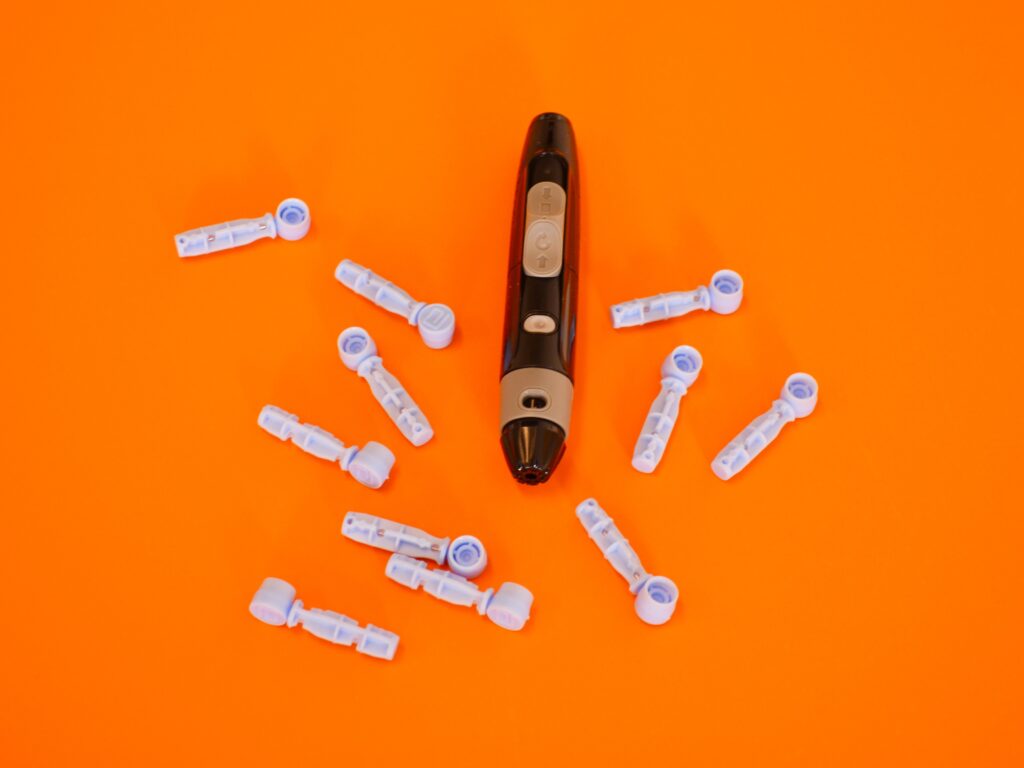Diabetes management is crucial to living a healthy and fulfilling life for individuals with diabetes. Diabetes is a chronic health condition. There are two main types of diabetes: type 1 and type 2. The primary goal of diabetes management is to maintain blood sugar levels within a target range to prevent both short-term and long-term complications.
Diabetes Types | QNET |
Type 1 diabetes is an autoimmune disease. This means that your body’s immune system attacks and destroys the cells in your pancreas that produce insulin. Insulin is a hormone that helps your body use glucose for energy.
Type 2 diabetes is caused by genetics and lifestyle factors, such as being overweight or obese, having a family history of diabetes, or being physically inactive.
There is no cure for diabetes, but it can be managed with a combination of medications, diet, and exercise.

Diabetes Management: Key Components
Here are some key components of diabetes management:
Blood Glucose Monitoring: Regularly check your blood glucose levels using a glucose meter. Your healthcare provider will help you determine your target range for blood sugar levels.
Medication: Depending on the type and severity of diabetes, medication may be necessary. People with Type 1 diabetes require insulin, while those with Type 2 diabetes may use oral, injectable, or insulin, depending on their needs.
Healthy Eating: A well-balanced diet is crucial in diabetes management. Focus on controlling carbohydrate intake, choosing foods with a low glycemic index, and monitoring portion sizes. In addition, consult with a registered dietitian for personalised meal planning.
Physical Activity: Regular physical activity helps improve insulin sensitivity and can help control blood sugar levels. Aim for at least 150 minutes of moderate-intensity aerobic exercise per week, as your healthcare provider recommends.
Stress Management: Stress can affect blood sugar levels, so it’s important to develop effective stress management techniques such as meditation, deep breathing exercises, or yoga.
Regular Medical Checkups: Schedule regular checkups with your healthcare team, which may include an endocrinologist, primary care physician, registered dietitian, and diabetes educator. These professionals can monitor your condition and provide guidance.
Foot Care: Diabetes can affect circulation and nerve function, increasing the risk of foot problems. Check your feet daily for signs of infection, blisters, or sores, and wear appropriate footwear.
Medication Adherence: Take your diabetes medications as prescribed and on time. If you have any concerns about your medications, discuss them with your healthcare provider.
Blood Pressure and Cholesterol Management: High blood pressure and cholesterol levels can increase the risk of complications. Monitor and manage these factors with the help of your healthcare team.
Self-Education: Continuously educate yourself about diabetes management. And also understand how different foods and activities affect your blood sugar levels, and be prepared to make adjustments as needed.
Emergency Preparedness: Always have a plan for managing low blood sugar (hypoglycemia) and high blood sugar (hyperglycemia) episodes, including carrying necessary supplies and informing close contacts about what to do in emergencies.
Support System: Build a support network of family and friends who can provide emotional support and help you stay on track with your diabetes management plan
If you have diabetes, working with your doctor to develop a personalised management plan that is right for you is important. This plan will likely include a combination of lifestyle changes and medications mentioned above. Furthermore, working together allows you to manage your diabetes and live a long and healthy life.

Diabetes Management: Four Essential Pillars
The four main pillars of diabetes management are:
Healthy eating: People with diabetes must make healthy food choices to help control their blood sugar levels. And also this includes eating plenty of fruits, vegetables, and whole grains, limiting processed foods, sugary drinks, and unhealthy fats, and choosing lean protein sources.
Physical activity: Regular physical activity can help people with diabetes lower their blood sugar levels, improve their blood pressure and cholesterol levels, and lose weight. The Centers for Disease Control and Prevention (CDC) recommends that adults with diabetes get at least 150 minutes of moderate-intensity aerobic activity or 75 minutes of vigorous-intensity aerobic activity each week.
Medication: People with type 1 diabetes need insulin injections to survive. Some people with type 2 diabetes may also need medication to control their blood sugar levels.
Blood sugar monitoring: People with diabetes need to check their blood sugar levels regularly to make sure they are staying in a healthy range. And also, this can be done with a blood glucose meter.
In addition to these four pillars, people with diabetes must manage other health conditions. These health conditions are common in people with diabetes, such as high blood pressure, high cholesterol, and heart disease. Also, they need to take steps to prevent complications of diabetes, such as eye problems, kidney disease, and nerve damage.
Additional Tips
Here are some additional tips for managing diabetes:
- Get regular eye exams and foot exams.
- Take your medications as prescribed by your doctor.
- Monitor your blood sugar levels regularly.
- Eat a healthy diet and exercise regularly.
- Manage stress.
- Quit smoking.
- Get enough sleep.
Conclusion
Managing diabetes can be challenging. So, it is important to remember that it is possible to live a long and healthy life with diabetes. By working closely with your healthcare team and following your diabetes management plan, you can take control of your condition and prevent complications. Remember that diabetes management is highly individualised. Your healthcare team will work with you to create a personalised plan tailored to your specific needs and goals. Lastly, consistency and commitment to your diabetes management plan are key to effectively managing the condition and reducing the risk of complications.




